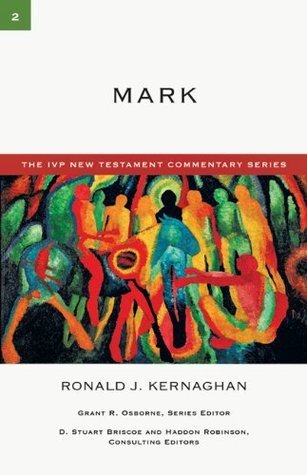


Books in series

Matthew
1997

John (Volume 4)
1999

Acts
1995

Romans
2004

1 Corinthians
2004

2 Corinthians
1996

Galatians
1994

Ephesians
1997

Philippians
2008

Colossians & Philemon
1993

1-2 Thessalonians
2003

1-2 Timothy & Titus
1994

Hebrews
1992

James
1993

1 Peter
1991

1-3 John
1992

Revelation
1997
The IVP New Testament Commentary Series
1997

James
2010

Mark
2010
Authors



Paul commonly known as Paul the Apostle and Saint Paul, was a Christian apostle who spread the teachings of Jesus in the first-century world Generally regarded as one of the most important figures of the Apostolic Age, he founded several Christian communities in Asia Minor and Europe from the mid-40s to the mid-50s AD. The main source of information on Paul's life and works is the Acts of the Apostles book in the New Testament, with approximately half of its content documenting them. According to the Acts, Paul lived as a Pharisee and participated in the persecution of early disciples of Jesus, possibly Hellenised diaspora Jews converted to Christianity, in the area of Jerusalem, prior to his conversion. Some time after having approved of the execution of Stephen, Paul was traveling on the road to Damascus so that he might find any Christians there and bring them "bound to Jerusalem". At midday, a light brighter than the sun shone around both him and those with him, causing all to fall to the ground, with the risen Christ verbally addressing Paul regarding his persecution. Having been made blind, along with being commanded to enter the city, his sight was restored three days later by Ananias of Damascus. After these events, Paul was baptized, beginning immediately to proclaim that Jesus of Nazareth was the Jewish messiah and the Son of God. He made three missionary journeys to spread the Christian message to non-Jews communities in Asia Minor, Greece, Macedonia, Cyprus, Judea and Syria, as narrated in the Acts. Fourteen of the 27 books in the New Testament have traditionally been attributed to Paul. Seven of the Pauline epistles are undisputed by scholars as being authentic, with varying degrees of argument about the remainder. Pauline authorship of the Epistle to the Hebrews is not asserted in the Epistle itself and was already doubted in the 2nd and 3rd centuries. It was almost unquestioningly accepted from the 5th to the 16th centuries that Paul was the author of Hebrews, but that view is now almost universally rejected by scholars. The other six are believed by some scholars to have come from followers writing in his name, using material from Paul's surviving letters and letters written by him that no longer survive. Other scholars argue that the idea of a pseudonymous author for the disputed epistles raises many problems. Today, Paul's epistles continue to be vital roots of the theology, worship and pastoral life in the Latin and Protestant traditions of the West, as well as the Eastern Catholic and Orthodox traditions of the East. Paul's influence on Christian thought and practice has been characterized as being as "profound as it is pervasive", among that of many other apostles and missionaries involved in the spread of the Christian faith.


Gordon Fee is Professor Emeritus of New Testament at Regent College, where he taught for sixteen years. His teaching experience also includes serving schools in Washington, California, Kentucky, as well as Wheaton College in Illinois (five years) and Gordon-Conwell Theological Seminary in Massachusetts (twelve years). Gordon Fee is a noted New Testament scholar, having published several books and articles in his field of specialization, New Testament textual criticism. He also published a textbook on New Testament interpretation, co-authored two books for lay people on biblical interpretation, as well as scholarly-popular commentaries on 1 and 2 Timothy and Titus and on Galatians, and major commentaries on 1 Corinthians and Philippians. He is also the author of a major work on the Holy Spirit and the Person of Christ in the letters of Paul. Gordon Fee currently serves as the general editor of the New International Commentary series, as well as on the NIV revision committee that produced the TNIV. Besides his ability as a biblical scholar, he is a noted teacher and conference speaker. He has given the Staley Distinguished Christian Scholar lectures on fifteen college campuses as well as the annual NT lectures at Southwestern Baptist Seminary, North Park Seminary, the Mennonite Brethren Biblical Seminary, the Canadian Theological Seminary, Duke Divinity School, Golden Gate Baptist, Anderson School of Theology, Asbury Seminary, and Chrichton College. An ordained minister with the Assemblies of God, Gordon Fee is well known for his manifest concern for the renewal of the church. Gordon Fee is married and has four married children.
